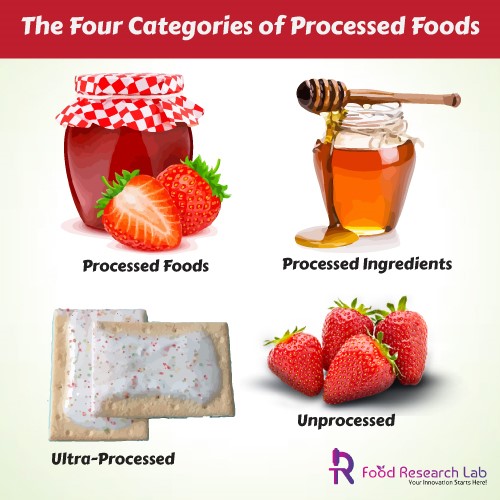
The Four Categories of Processed Foods
Unprocessed or minimally processed foods
You are eating an unprocessed meal if you bite into an apple, shuck and swallow a live oyster, or consume a tomato from your garden. As previously said, most foods are processed in some way. Foods that have been little processed, such as packaged carrots, chopped lettuce, and raw almonds, are nutritious, and the processing is primarily for convenience. Minimally processed foods may have additives that help maintain the original food’s characteristics and facilitate transportation.
Processed culinary ingredients
Culinary components that have been processed come from natural sources or unprocessed or minimally processed foods. Processes like pressing, refining, grinding, and other methods are used to change them in the cooking process. Sugar made from sugar cane, maple syrup made from maple trees, and vegetable oils made from olives or seeds are just a few examples.
Processed foods
Foods like tomatoes, green beans, tuna, and berries canned or frozen immediately after harvesting are included in this category, known as “Lightly Processed Foods.” They may contain one or two more components, such as salt, sugars, or oils, but seldom have more than three or four. Bread, cheeses, and pasta, for example, are examples of moderately processed foods. Some pasta sauces and salad dressings may be called minimally processed since they contain only a few high-quality additional ingredients (e.g., herbs, spices, oils).
Heavily/Ultra Processed food
Many of the foods in this category are referred to as “junk food.” These foods contain sugars, oils, fats, salt, antioxidants, stabilizers, and preservatives manufactured with five or more components. In general, ultra-processed meals include a lot of additional ingredients that don’t exist naturally. About 90% of the added sugars consumed in the United States comes from ultra-processed foods. Almost all of the items in this category are harmful, and drinking too much of them raises the risk of obesity and diabetes and cardiovascular disease.






